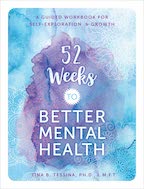
 |
| THE LEGACY OF GRIEF
Learn from bad experiences, treasure good ones. When you lose a loved one, a beloved pet, or go through a breakup or even lose a home or job you were attached to, it’s valuable to grieve. Going through your grief, while sometimes painful, will allow you to access the good memories and not just the loss. Grief is a very mixed bag of emotions, from sadness through anger, despair, loneliness, numbness, and feeling lost; plus some other reactions, like changes in appetite, lack of motivation and feeling confused. You may also go through an initial period of shock or denial, which will cause you to feel disconnected and numb. Depending on the circumstances of your loss, you will feel most of these feelings and reactions. If the loss was gradual, such as losing a loved one from a long illness or gradual dementia, you’ll experience a lot of your grief before the person is gone, and mostly relief when they are finally released from their suffering. A sudden loss causes all the feelings and reactions of grief to happen at once, usually preceded by shock. After the initial stages of grief have passed, you have an opportunity to reclaim your good feelings about the person, relationship or situation. You’ll feel better if you don’t stay stuck in the negative memories of illness or difficulties. Take the time to sort through your memories and remember the good times before the loss. Even in a bad relationship breakup, there were good times at some point, or you probably wouldn’t have been together. If you have pictures of happy times, put them where you can see them when you want to. Create a special file on your smart phone, or a photo album of the good times. Write about your history before the loss, or record a short video. While this might increase your feeling of loss at first, over time you’ll be glad to remember what was good before the loss. Our minds and memories tend to hang on to the drama, and the bad times, if we don’t re-program them to focus on what was good. Every situation, every loss, gives us something to learn. Focusing on what you learned, even though the ending was painful, makes the experience feel more meaningful and worthwhile. Even the worst situation can teach us important truths and skills. When you learn from a difficult process, you’ll have new ideas and skills you can use to prevent repeating old mistakes. That, in itself, makes the pain worth going through. Hearing the voice of your lost loved one in your thoughts, or feeling their presence from time to time, can be comforting. Treasure those moments. If you dream about your loss, regard that as a visit you can cherish. It’s impossible to avoid pain. It’s much more beneficial to learn from painful experiences and get the value from them. This can motivate you to get back out there and have new experiences, knowing you’ll learn from even the worst of them, and treasuring every happy and loving moment you have. © 2023 Tina B. Tessina Adapted from: 52 Weeks to Better Mental Health: A guided Workbook for Self-exploration and Growth 
Author Bio: Tina B. Tessina, Ph.D.is a licensed psychotherapist in S. California since 1978 with over 40 years’ experience in counseling individuals and couples and author of 15 books in 17 languages, including Dr. Romance’s Guide to Finding Love Today; It Ends With You: Grow Up and Out of Dysfunction; The Ten Smartest Decisions a Woman Can Make After Forty; The Real 13th Step; How to Be Happy Partners: Working it Out Together; How to Be a Couple and Still Be Free; Money, Sex and Kids, and her newest, 52 Weeks to Better Mental Health. She writes the “Dr. Romance” blog, and the “Happiness Tips from Tina” email newsletter. Online, she’s known as “Dr. Romance.” Dr. Tessina appears frequently on radio, TV, video and podcasts. She tweets @tinatessina. | ||
| RETURN TO HAPPINESS TIPS • GO TO HOME PAGE | ||
| Phone: (562)438-8077 | for permission to reprint, email: tina@tinatessina.com All material ©2023 Tina Tessina. All rights reserved. |